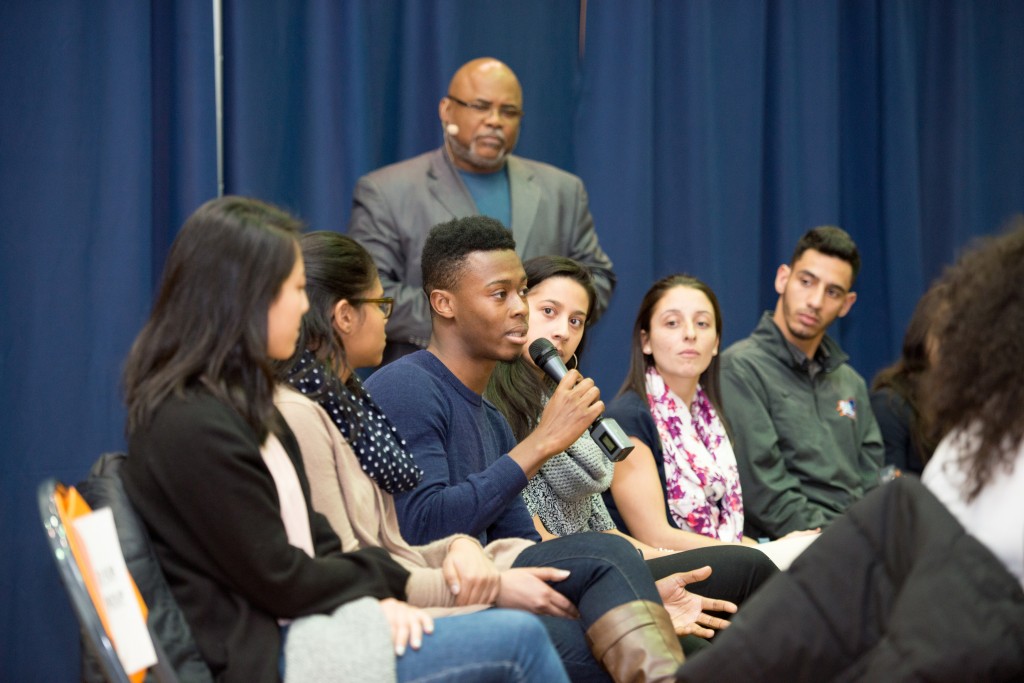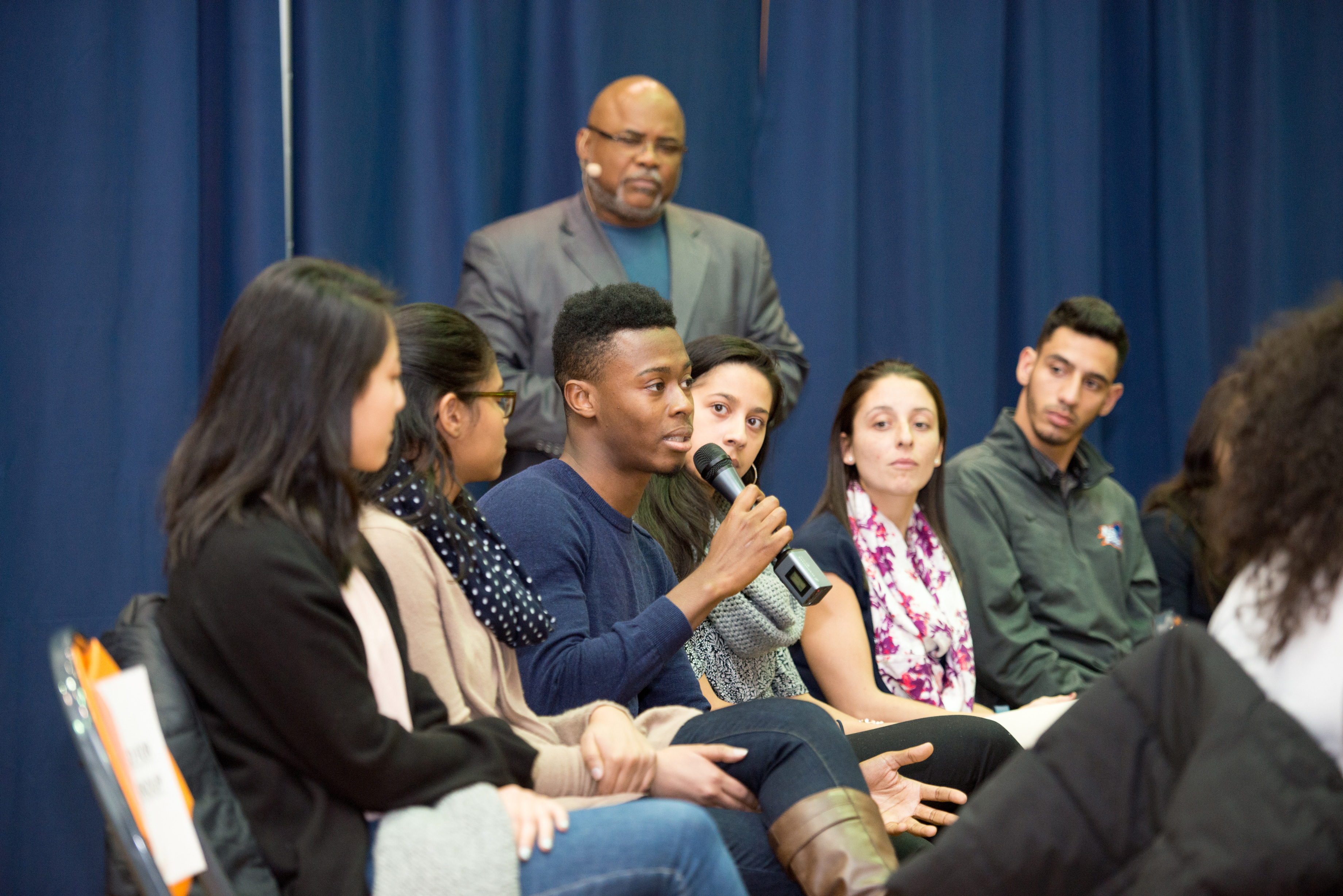Town Hall encourages conversation on inclusion
 At a Town Hall-style event, organized by the Office of the President and moderated by renowned diversity thought leader Dr. Steven Jones, members of the New Paltz campus community gathered together to listen and be heard on the subjects of cultural inclusion and campus climate.
At a Town Hall-style event, organized by the Office of the President and moderated by renowned diversity thought leader Dr. Steven Jones, members of the New Paltz campus community gathered together to listen and be heard on the subjects of cultural inclusion and campus climate.
The gathering, held Feb. 10, was designed for community members to be able to speak frankly and openly about their experiences on the campus, and for campus leaders, faculty, staff, and students to learn from this dialogue to inform the College’s ongoing planning and program development.
“Our campus community cannot correct the ills of American society, but we can work to make our campus more inclusive, more equitable,” said President Christian. “We have learned that having conversations solely in response or reaction to hateful acts or racist incidents is insufficient. We have learned that we must be committed to ongoing work if we are to address issues that are deeply embedded in our society, culture, history, and institutions. These are conversations that need to happen at all levels of the institution.”
In his introduction, Jones noted that “To build a culture of inclusion takes intentionality. It doesn’t happen by itself. This is a complex, multi-dimensional challenge to us to explore the conscious and unconscious biases that we all hold.”
He added, “What we want to do is practice a collective skill: dialoguing around inclusion. Being intentional about inclusion and building a culture of inclusion is not just an interpersonal, you-and-I conversation. This is a collective skill that challenges us to have a comfortable conversation about uncomfortable topics. That’s a big part of why we’re here today, to continue ongoing efforts to support the diversity that exists and increase diversity here at New Paltz.”
The event stipulated that participants’ comments would remain anonymous, but the following unattributed quotes offer a glimpse of some of the perspectives that were represented at the Town Hall event.
“We want this to be a dialogue for us to tell our narratives and our experiences on this campus, and to say what we bring to this campus. Many of us feel that there are things the faculty and administrative staff don’t necessarily know, as they pass us by every day. So we want this to be a space for us to say, ‘This is what we want as a campus, and this is what we need to feel more comfortable here.’ We also want to hear where the faculty and staff stand on these issues. Sometimes this feels like an ‘us-against-them’ conversation, so this is our chance to see where we have commonalities, where we do not, and how we can grow from here and use this conversation as a stepping stone in the right direction.” – a student
“One thing I know New Paltz does well is that we do a great job of identifying a problem when it comes about. What I think we can improve is making the solution to that problem a part of our everyday lives, not just the lives of those who are being affected, but the campus community as a whole. If there’s an issue affecting any group in our community, it should be affecting us all.” – a staff member
“I’m a U.S. Marine Reserve. One of the good things I’ve experienced coming here was the veteran and service member community is very strong and tight-knit here. It really feels like they would bend over backwards to help me out with things like my tuition assistance. But what I’ve experienced personally is that it kind of just stops there. I don’t have any other experiences with other groups or programs in the school. Once I finish my classes, I go home; I don’t include myself in anything in the school because I relate more to other service members than to other students and to my professors. That’s something I need to work on personally, but the school could do a better job learning about the veteran community.” – a student
“Over the years since I’ve graduated, when I’ve come back to campus to participate in Black Solidarity Day I’ve noticed and appreciated the broadening of student attendance, and the broadening of the celebration of Black contributions to society, of Black students and of African-American culture. This community has expanded the audience that participates in that celebration, and that is a win.” – an alumnus
A full transcript of the Town Hall discussion, with names of speakers redacted, will soon be available to the campus community.

